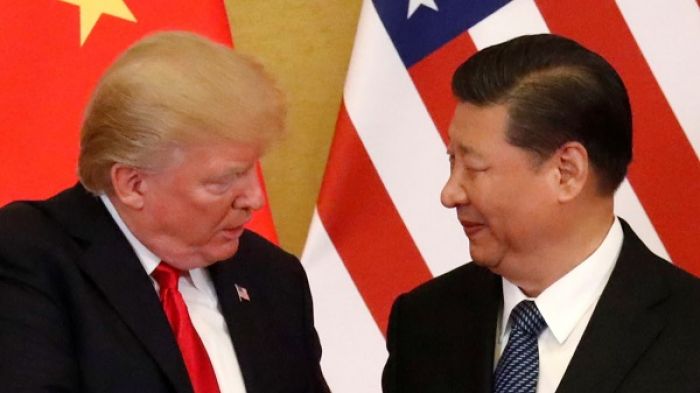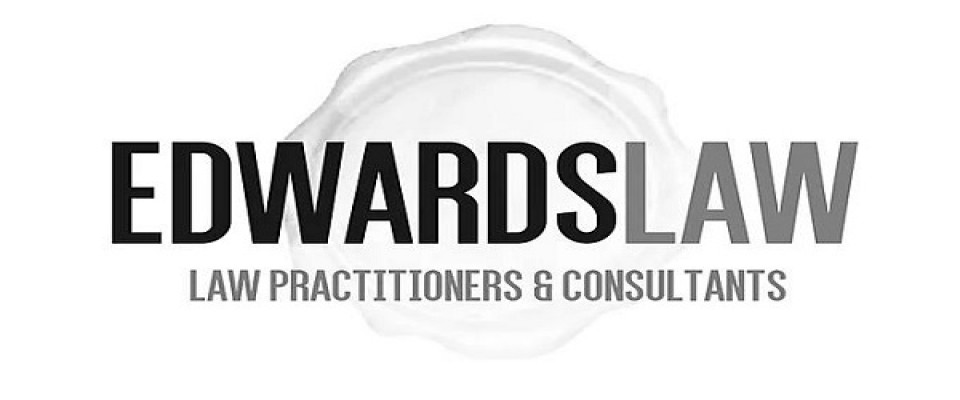United States and China's conflict over Hong Kong controversial security law Featured
 President Trump of the United States and President Xi of China
President Trump of the United States and President Xi of China
United States and China's conflict over Hong Kong controversial security law
12, June 2020. Nuku'alofa, Tonga Sponsored Article by Col. (Ret'd) Siamelie Latu
Hong Kong government should proactively cooperate with the motherland regarding the new national legislation for Hong Kong to safeguard the century-old foundation of the “Pearl of the Orient”.

On Friday 22 May 2020, a draft decision on establishing and improving the legal system and enforcement mechanisms for the Hong Kong Special Administrative Region (HKSAR) to safeguard national security was submitted to China's national legislature for deliberation. This is the result of the violent protests last year in Hong Kong which triggered the necessity of such a legislation.
Twenty-three years after Hong Kong's return to the motherland, the city still hasn't enacted a national security law to prohibit treason, secession, sedition and subversion, as required by the Basic Law of the Hong Kong Special Administrative Region (HKSAR).
However, not everybody is happy about this including the United States who have been supporting the anti-Chinese protests in Hong Kong. These protests are often large and violent. Historically, the United States and the People’s Republic of China have been practicing and supporting two different ideologies, namely capitalism and socialism with Chinese characteristics since the Cold War.
The new legislation has the following objectives: It aims to prevent, stop and punish acts and activities endangering national security, maintain Hong Kong's long-term prosperity and stability, and better protect the legitimate rights and interests of Hong Kong residents. This explains the background of the submission of the draft decision.
Such acts include those intended to "split the country, subvert state power, organize and carry out terrorist activities and other behaviors that seriously endanger national security." The proposed legislation states clearly that the country will unswervingly, fully and faithfully implement the principle of “one country two systems”, the people of Hong Kong governing Hong Kong and a high degree of autonomy stresses taking necessary measures to establish and improve the legal system.
The Pro-Democracy Movement in Hong Kong is not in favor of this clause. They believe that “one country, two systems” has already eroded to “one country, one system” if the national security legislation is implemented in Hong Kong. They believe it aims to appoint secret police from Beijing to Hong Kong. They also believe that court prosecution and trial will take place in the Chinese Mainland instead of Hong Kong which will turn Hong Kong into a nightmare. Hong Kong might not be recognized as Global Financial Centre.
The proposed national security legislation also seeks to prevent external interference in Hong Kong's affairs. It clearly stated in article 2 that the country resolutely opposes the interference in the HKSAR affairs by any foreign or external forces in any form and will take necessary countermeasures. It criminalizes acts that threaten national security such as subversion and secession, and allow the Central People’s Government to establish a national security agency in Hong Kong when necessary and require the Chief Executive to send the central government periodic reports on national security.
Leader of Pro-Democracy Movement Mr. Joshua Wong strongly opposes this as he thinks it targeted people who criticize the Central People’s Government and the City Leader Carrie Lam, who was selected on 26 March 2017, appointed by the Central People's Government with the State Council Decree signed by Premier Li Keqiang, on 11 April 2017 and took office on 1 July 2017.
Implications of the National Security Legislation on US and China
The “battle” between China and the US over Hong Kong has started. The US is increasingly aggressive over the draft decision on establishing and improving the legal system and enforcement mechanisms for the Hong Kong Special Administrative Region.
The new law will encourage Washington to monitor Beijing's actions in Hong Kong. The US could revoke the special trading status it has granted the territory if China undermines the city's rights and freedoms. The Hong Kong special trading status is that Under the United States-Hong Kong Policy Act of 1992, the US affords Hong Kong special status as a part of China.
From the U.S. perspective, perhaps the biggest way in which Hong Kong is treated as separate from China has been in trade and economics. The U.S. recognizes Hong Kong as a unique customs territory, which means it has been largely spared the upheaval of the US-China trade war. Hong Kong is one of the United States' biggest export markets and it has a zero tariff rate on U.S. imports.
On 29 May, 2020 US President Donald J. Trump announced in a news conference that Hong Kong is no longer sufficiently autonomous to warrant the special treatment that the United States has afforded Hong Kong since its handover to China. As a result, the Trump Administration is beginning the process of eliminating US policy exemptions that give Hong Kong special and different treatment.
The US is removing Hong Kong’s status as a separate customs territory. It means that all anti-dumping and countervailing duties imposed by the United States on various products from China, as well as all applicable Section 301 tariffs, will soon apply to Hong Kong as well. Hong Kong manufacturers of certain goods will be subject to the above tariffs. In short, by removing Hong Kong’s status, Hong Kong and China are one in the same with respect to trade tariffs and duties. What the United States levies on products from China will now apply directly to products from Hong Kong as well, without distinction.
The removing of the Hong Kong separate customs territory status is the only way the US has to create a substantive effect. Yet, this will also severely hit many US companies and US exports to Hong Kong. China is holding the initiative in this “battle” over Hong Kong. Although the US can sabotage Hong Kong’s environment from the outside, its role is limited.
We can imagine if the national security law for Hong Kong is passed, the US ability to directly interfere in Hong Kong’s situation will be greatly reduced. Hong Kong’s future prosperity will be shaped by Hong Kong people themselves, with the help of the whole country.
It should be noted that the US has never provided any advantages specifically for Hong Kong. In the past, Hong Kong played the role as a financial center because of the fact that the Chinese mainland got its back. The city has been a good communicator between China and the West. If the US insists on disengaging itself from China, it certainly will not pity Hong Kong alone. Hong Kong must adapt to the changing situation and enrich its ways to stay prosperous.
Moreover, US does not represent the world, or the West. The future development of Hong Kong will only get better when it regains stability with the full support of the whole country together with its high degree of autonomy. Hong Kong is even more open to the outside world, and the city has no reason to fail just because of potential punishment from the US. The US does not have that much strength.
Hong Kong people should take note that the HKSAR’s status separate customs territory is not a gift from the US. Hong Kong has been a world-famous trade center for centuries and known as the most prominent among the three free ports in the world.
Hong Kong will eventually become stable. The trend will offer the city bright prospects as a financial center. China, with its huge economy and improving systems, has enough ability to support a global financial center. There are financial centers among Chinese cities, but this is not a gift from the US but was earned by the Chinese people. Wherever China decides to place its financial center on its coastline, the right and prospects of the place cannot be harmed by anyone as oppose to the World Trade Center in New York.
Furthermore, Hong Kong receives the sixth highest amount of foreign direct investment from the US and is the ninth largest importer of US goods, which provide them with the largest trade surplus than any economies in the world. Each year the US attained more than $30 billion trade surplus from Hong Kong, which creates approximately 200,000 jobs for its economy.
The new Legislations Spark Social Unrest in Hong Kong Supported by US
There is a Chinese proverb which states “In a boat against the current, one can only strive ahead successfully or be beaten back ceaselessly into the past.” If Hong Kong fails to take swift action to stop street violence and end the unrest, the socio-political environment will remain hostile. Then people’s livelihoods will fall into a downward spiral of recession. Local and overseas enterprises will also reconsider their long-term business plans in Hong Kong and possibly leave Hong Kong.
Hence, the Chinese Central Government has the ultimate responsibility for upholding national security in Hong Kong and the proposed legislation “will protect law-abiding citizens”. This move affirms that Hong Kong as we knew, it is gone, and the rule of law is now rule by law.
Article 4 of this new national security legislation specifies that the HKSAR must establish and improve the institution and enforcement mechanisms for safeguarding national security. When needed, relevant national security organs of the Central People’s Government will set up agencies in the HKSAR to fulfill relevant duties to safeguard national security in accordance with the law.
After the national security legislation was submitted to the Two Sessions of the NPC, radical protesters descended into the streets of central Hong Kong, claiming it infringes on the city's autonomy. US joined in and support anti-China protests in Hong Kong. The rise of the Black Clad Protesters in Hong Kong who is being supported by the United States calling the draft legislation the “end of Hong Kong”.
Observers may ask this question: Why does the US refer to those “Hong Kong independence” and black-clad protesters as ‘heroes’ and ‘fighters’ but label its people protesting against racial discrimination as ‘thugs’? “Why did the US have so many problems with the restrained and civilized way of law enforcement by the Hong Kong police but have no problem at all with threatening to shoot at and mobilizing the National Guard against its domestic protesters over the death of George Floyd an unarmed Black man who died last week in police custody in Minneapolis, Minnesota. Protesters are demanding all four officers involved be charged in Floyd's death. So far, only one - white officer Derek Chauvin, who knelt on Floyd's neck for nearly nine minutes as the Black man pleaded, "I can't breathe" - has been arrested and charged with third-degree murder and manslaughter.
In this scenario, there is a great risk to the US presidential tactics which would pose grave threat to America’s democracy. The brutal killing of George Floyd has sky-rocketed race politics to the top of the national agenda. The demand for national leadership to unite a clearly passionate and divided United States could not be higher, but President Donald Trump is instead adopting tactics that are widening division and risking greater instability and violence.
The President’s demand that governors ‘dominate’ protesters was supported by the use of tear gas by police to disperse lawful protesters outside the White House. Trump pledged, to deploy “thousands of heavily armed soldiers” if necessary, to put down the violence, calling himself a “president of law and order.” His remarks came after China’s parliament on May 28th passed a resolution to introduce a national security law for Hong Kong. Trump’s decision to deploy US military troops across United States sparks a rather dangerous embrace of law and order tactic that mimic the authoritarian leaders Trump has long admired.
But in a nation defined by a well-honed expectation of the right to civil disobedience and political protest, and an unparalleled embrace of individual freedoms, the President’s tactics could backfire, triggering an escalation of violence and furthering America’s domestic political and economic crisis.
It would be harder for the U.S. to hold itself up as a model that is functional when it not only has got a pandemic that's run murderously and it can't control, but when its cities are on fire with race riots, it is a kind of a net win for China.
What will happen in the future ?
China and US relationship will continue to be in a sense of détente, antagonism, cooperation, challenge, anti-challenge, and each one will be. One or other time spectacular, United States will continue to interfere in the Chinese sovereignty and internal affairs, in order to limit or strike Chinese economic development.
United States will continue, via the West, or via the international organization under their control, to lead subversion, infiltration, protests against Chinese existing social system, in order to achieve its goal of the peaceful evolution. United States will also adjust Western strategy according to the international situation and a Chinese political and social situation. USA will continue to impose economic, trade, or high-tec sanctions, restriction, or embargoes on China, in order to coordinate their anti-Chinese politics and strategy
Conclusion
It can be concluded that Washington still wishes to use Hong Kong to contain China as well as to collect intelligence, engage in espionage warfare and obtain economic benefits from Hong Kong. They can exert pressure on Hong Kong, but not necessarily have to resort to a face -off. Hence, in this context the current Sino-US tension, Washington’s attempt to hold Hong Kong’s special customs territory hostage is at most, a political blackmail intended to contain China by battering Hong Kong.
Hong Kong government should proactively cooperate with the mainland and rely on the motherland to cope with Washington’s maneuvers, by safeguarding the century-old foundation of the “Pearl of the Orient”, Hong Kong can continue to play its role in China’s rejuvenation.



